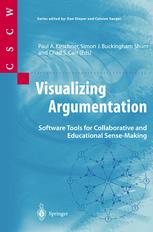

Most ebook files are in PDF format, so you can easily read them using various software such as Foxit Reader or directly on the Google Chrome browser.
Some ebook files are released by publishers in other formats such as .awz, .mobi, .epub, .fb2, etc. You may need to install specific software to read these formats on mobile/PC, such as Calibre.
Please read the tutorial at this link: https://ebookbell.com/faq
We offer FREE conversion to the popular formats you request; however, this may take some time. Therefore, right after payment, please email us, and we will try to provide the service as quickly as possible.
For some exceptional file formats or broken links (if any), please refrain from opening any disputes. Instead, email us first, and we will try to assist within a maximum of 6 hours.
EbookBell Team

5.0
30 reviewsComputer Supported Cooperative Work's synergistic combination of computing science/software engineering with a range of theoretical and applied human sciences has made it one of the most exciting areas of everyday computer use. The Computer Supported Cooperative Work (CSCW) series provides an overview of current knowledge, research and debate for designers, users and students. Each volume in the series provides detailed coverage of a specific topic within CSCW and groupware.
Computer Supported Argument Visualization is attracting attention across education, science, public policy and business. More than ever, we need sense-making tools to help negotiate understanding in the face of multi-stakeholder, ill-structured problems. In order to be effective, these tools must support human cognitive and discursive processes, and provide suitable representations, services and user interfaces.
Visualizing Argumentation is written by practitioners and researchers for colleagues working in collaborative knowledge media, educational technology and organizational sense-making. It will also be of interest to theorists interested in software tools which embody different argumentation models. Particular emphasis is placed on the usability and effectiveness of tools in different contexts.
Among the key features are:
• Case studies covering educational, public policy, business and scientific argumentation
• Expanded, regularly updated resources on the companion website:
www.VisualizingArgumentation.info